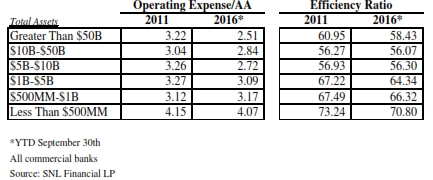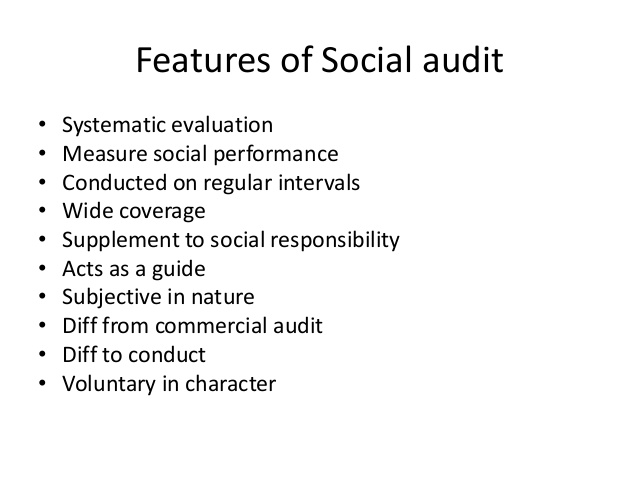
This is followed by the actual audit, coming up with and verifying the findings. This is often followed by a public meeting in which the results of the audit are shared. The main purpose of conducting a social audit is to present the report about the work process of an organization. However, to make the reports public or not is completely in the hands of the organization. Because of the continuous deteriorating condition of environment and society, the social audit has become essential to curb the antisocial and anti-environment actions of organizations. The Responsible Jewelry Council (RJC) was formed by the leading mining and retail companies in the jewelry industry to set ethical standards for the watch and jewelry industry.
Prevalence and factors associated with suicidal ideation, cannabis … – BMC Psychiatry
Prevalence and factors associated with suicidal ideation, cannabis ….
Posted: Tue, 08 Aug 2023 06:44:26 GMT [source]
Since social audits are voluntary, any release of the findings to the general public is also voluntary. While positive results might be disclosed, negative results might be kept internal and used to identify potential improvements that can make the results of the next social audit more favorable. The effects of commercial operations on society and the environment have types of social audit come to light in the wake of recent international events. Customers, employees, investors, and members of civil society are among the stakeholders who are no longer satisfied with businesses just declaring their sustainability initiatives. Public interest is putting pressure on businesses to be more socially responsible by demanding accountability and transparency.
Social audit can also be used for auditing the performance
of all three PRI tiers with a social audit committee at each level. These
committees should not be permanent, but can be set up depending on the nature of
programmes/schemes to be audited. Non-governmental organizations, teams, and other external parties frequently conduct these audits to determine whether human rights have been violated in a certain area. The utilization of child labor, the right to free association and assembly, the eradication of racism, and the rights of indigenous people are all topics that are frequently discussed.
Reasons for a Social Audit
Each of these audits have its own strength, focus and weaknesses and are generally audited by an independent third party. Which type of auditing service is best for your company can depend on what regulations you want to adhere to, what your business goals are, and the needs of your clients. A social audit, also known as an ethical audit, is an investigation to ensure suppliers meet global, regional, or company standards regarding corporate social responsibility. The ethical auditing process applies to all parts of the supply chain, but is often particularly focused on supplier practices and sourcing.
The International Council of Toy Industries (ICTI) is a non-profit membership organization comprised of national toy associations across more than 20 countries. The organization focuses on progressing safety and social rights for toy factory workers, encouraging the adoption of toy safety standards, and removing barriers of entry in trade. A social performance audit involves several interests groups such as church groups, universities, mutual funds. Here, consumer activists regularly evaluate and rank socially responsive companies on the basis of their performance.
Different Types Of Social Audit
Being granted AAC approval indicates NSF’s commitment to correctly using ETA (Sedex Members Ethical Trade Audit), the Sedex social audit methodology, and to conducting audits with quality and integrity. They can also work as the consultation in the social audit process, make sure that people involved in the process are unbiased and have no personal objectives. The whole purpose of conducting the social audit process should be concerned with the society and environment. The meaning of social audit is to inspect a company’s working and production procedure to improve its social performance. The output of the social audit provides information on how well a company is keeping a balance between social responsibility and making profits.
- The goal of an ICS audit is to improve working conditions along global supply chains in these sectors.
- Auditors can hand over these reports to the investors who wish to invest in this company.
- In the next step, key issues which are required to be analyzed and tackled through the social audit process should be defined.
- The business has a special obligation toward the consumer as the business exists to serve and satisfy the needs of the customers.
- Whether the production process or working procedure is harmful to the environment.
A financial statement is a reliable source of information since it displays the outcomes of an organization’s operations and offers details on its general performance and potential. Due to this, an annual report should also include information about any ethical considerations that have been made in addition to financial data. The management of social audits, which demand a thorough evaluation of internal and supply chain social and environmental issues, is what makes Certainty a good fit.
Building Water Health Consulting Services
If a company is doing a green business without harming the environment in any way and by opting environment-friendly procedures. Whether the required safety and health measures are taken by the organization in the workplace. Economic indicators of the organization must be audited, and required actions should be should if there is a case of any irregularity. The three-year study heavily relied on interviews and questionnaires with many of the organization’s employees from all levels. It was focused on analyzing the experiences of the senior management and junior staff compared to the stated objectives for the organization established beforehand.
In 1995, the non-governmental Child Labour Elimination
Society (CLES) initiated a project to set up 40 Vidyalayas (schools) in three
blocks with a high incidence of child labour in Jamtara district. The funds for
the project were provided by the Ministry of Labour, Government of
India. The relationship between
people and their local representatives developed quickly into one of mutual
support.

A social audit is a process of how well the company is achieving its goals for social responsibilities. This company claims that they make donations by offering groceries to needy families. In such cases, auditors can check their charity records to find out whether this task was performed or not. If they are doing a clean business without harming the environment, their reports will be generated. Auditors can hand over these reports to the investors who wish to invest in this company. The process was a way to bring resources to the local
community and to increase its involvement in Gram Sabha meetings which took
place four times a year.
#2 Choose the people participating in the process:
Yet another is to provide information needed to improve the effectiveness of programs designed to enhance community development. When companies look to improve visibility within their supply chains, they often focus on inventory and transportation. But examining suppliers’ labor practices through social audits can be just as important, especially when seeking to maintain high corporate social responsibility (CSR) standards. A social audit is an essential tool that helps businesses measure and report on their social and environmental performance, providing a mechanism for stakeholders to assess a company’s ESG goals. There are a series of other forms of social audits that can be done for supply chains. These range from social compliance audit, environmental audits, to ESG (Environmental, Social, Governance) audits and more.
- An example of a social audit is when auditors investigate a business owner’s claim of donating food to street families.
- This and other such
meetings helped citizens to understand the way government business is conducted
and the skills of negotiating with officials. - This type of audit has reached great importance and presence in all types of organizations globally.
- It measures how much a corporation engages in corporate social responsibility.
Certification, GRASP has helped 50,000-plus producers upgrade their good social practices, assess their social management systems and demonstrate their compliance to their buyers. Define what information should be collected for the particular issue and what methods should be opted to collect information. It is also important to understand that a social audit does not exclude an examination of accounting and financial documents, as they are as valuable in the social audit process as some of the other items mentioned above. Sign up for QIMA newsletter and receive insights on quality control, global trade compliance, CSR and traceability in the supply chains.
Factors examined by a social audit include records of charitable contributions, volunteer events, efficient utilization of energy, transparency, work environment, and employees’ wages. Another reason for conducting it is to establish a positive image of the company in society to attract more customers. Companies conduct social audit internally, and if everything is found fine and per the society, then the report is made public.

Thirdly, the organization needs to analyze the data and identify areas for improvement. Finally, the organization needs to report on its social and environmental performance, both internally and externally. A social audit is an enclosed examination of how a selected business has effects on society. The audit helps companies to work out if they’re meeting their objectives, which can include measurable goals and benchmarks.
Constituency Group Audit
As a result, company executives could enact initiatives with measurable goals designed to increase community involvement. Social audits are optional, which means that companies can choose whether to release the results publicly or only use them internally. With your audit findings, Certainty delivers real-time data that enable firms to pinpoint areas for development and monitor advancement over time. In order to help organizations make data-driven decisions and enhance their sustainability performance, the platform also offers a dashboard that gives a quick overview of important performance metrics. This is a risk assessment of social practices on the farm, focused on workers’ health, safety and welfare.
The aim of social audit is To identify the working style and works of the companies which do impact society. Make sure to verify the processes by visiting the workplace; otherwise, a small mistake in the social auditing report might leave the accuracy of the whole report in jeopardy. The objective of conducting a social audit is to analyze the process implemented for the execution of the process, quality of basic services and infrastructure created, and to assess the health and security measure taken. Social components are a concern with the relationship of the company with society and the employees working in it.

As far as common understanding goes, it is an important assessment of how well a company has discharged its social obligations. However, experts see it as a systematic and comprehensive evaluation of a company’s social performance’ which is explained as a company’s efforts in enriching the general welfare of the whole community and the whole society. Sedex is one of the world’s leading collaborative platforms for buyers and suppliers to store, share and report on ethical and social audit information quickly and easily.
On the other hand, governments in various countries have also adopted stricter policies and regulations on social responsibility and good corporate governance. The organization has also expanded its Code of Business Practices, which seeks to promote compliance with ethical standards in global toy supply chains. An ICTI ethical toy audit certifies that its Code of Business Practices is being followed in toy factories. In this type, the company’s performance in terms of micro-social measures against macro social measures is evaluated. The macro social factors include the social goals expected by society in terms of health, safety, education, and more. While the micro-social measures include the performance of the company in those areas measured by macro-social indicators.



